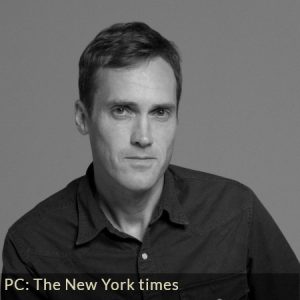
Tom Vanderbilt
Guest is known for...
Tom Vanderbilt is a journalist who writes on design, technology, science, and culture for publications such as Wired, The New York Times Magazine, the Wall Street Journal, and Slate. He authored the bestseller Traffic and explored consumption choices in his book You May Also Like. Vanderbilt’s multimedia presentations help shed light on surprising behavior patterns.
Here's what I will learn...
Many adults avoid trying new things, but Tom Vanderbilt’s book “Beginners” challenges this mindset. The author seeks to acquire new skills, such as drawing and surfing, to explore the science of brain plasticity and how we can continue to learn as we age. The book promotes embracing challenges and the joy of learning.
LISTEN TO THE FULL CONVERSATION
From the Podcast
Tom speaks about how we went about picking 5 skills that he wanted to learn from Ground Zero. He picks Singing, Surfing, Drawing, Juggling and Making a Ring. He speaks about the criteria he used to come up with this short-list of items that he would pursue.
Tom speaks about how learning works and speaks about the distinction between conscious and subconscious learning. He also makes the distinction between the different parts of the brain and intelligence that get developed when we learn. He speaks about fluid intelligence which is often the raw horse-power that gives you the ability to process a situation. He contrasts that to crystallized intelligence which is often the wisdom based on the cumulative experiences we have had in life. Chess Legend Vishy Anand had spoken about this distinction when he was on the podcast.
Tom speaks about how sometimes we get caught up in a race towards mastery on a topic where we are amateurs. But in our mind, there is often a misplaced sense of professionalism that can sometimes have negative consequences without us realizing. I guess these are individual choices that we make but being aware of this phenomenon and having a clear Why behind some of these pursuits is often helpful.
Tom speaks about how kids learn and how they keep changing the nature of experiments they do to make the learning “less brittle”. He speaks about his insights from the Infant Action Lab in New York University where he saw how children experiment their way into learning and what we can learn from that.
Tom speaks about the challenges we face in the unlearning process whenever we have spent a lot of time learning something. He speaks about a rocket scientist in Huntsville Alabama, who constructed a cycle with different movements to prove the point about how difficult it is to balance the cycle.
Tom speaks about how our approach to learning shifts as we go through the various stages of learning something – Novice, Advanced beginner, Competent, Proficient and Expert. He speaks about how we initially focus on learning the rules involved but as we go up the learning curve, we need to get comfortable with the evolving context around us and that can require a very different approach.
Tom speaks about the limitations of learning a skill on an online platform like YouTube where there are several videos to learn various skills. He talks about the role of feedback in the way we can grow our capabilities in a certain area.
Tom speaks about how drawing is an immersive and a meditative process and how it helps him see a situation with a lot of nuance and accuracy.
Tom speaks about how we should think about friction when we learn something. He uses the metaphor of travel versus tourism to say that it is easy to get a quick a dirty version of most things but sometimes the immersive slow learning process has its own rewards.
Tom speaks about how dabbling in a new area often provides a fresh perspective and a new energy to pursue mastery. He speaks about how some of the Nobel Prize scientists are statistically more likely to have participated in amateur activities performing arts, magic tricks and pursuits like that than the non-Nobel Prize winners.
